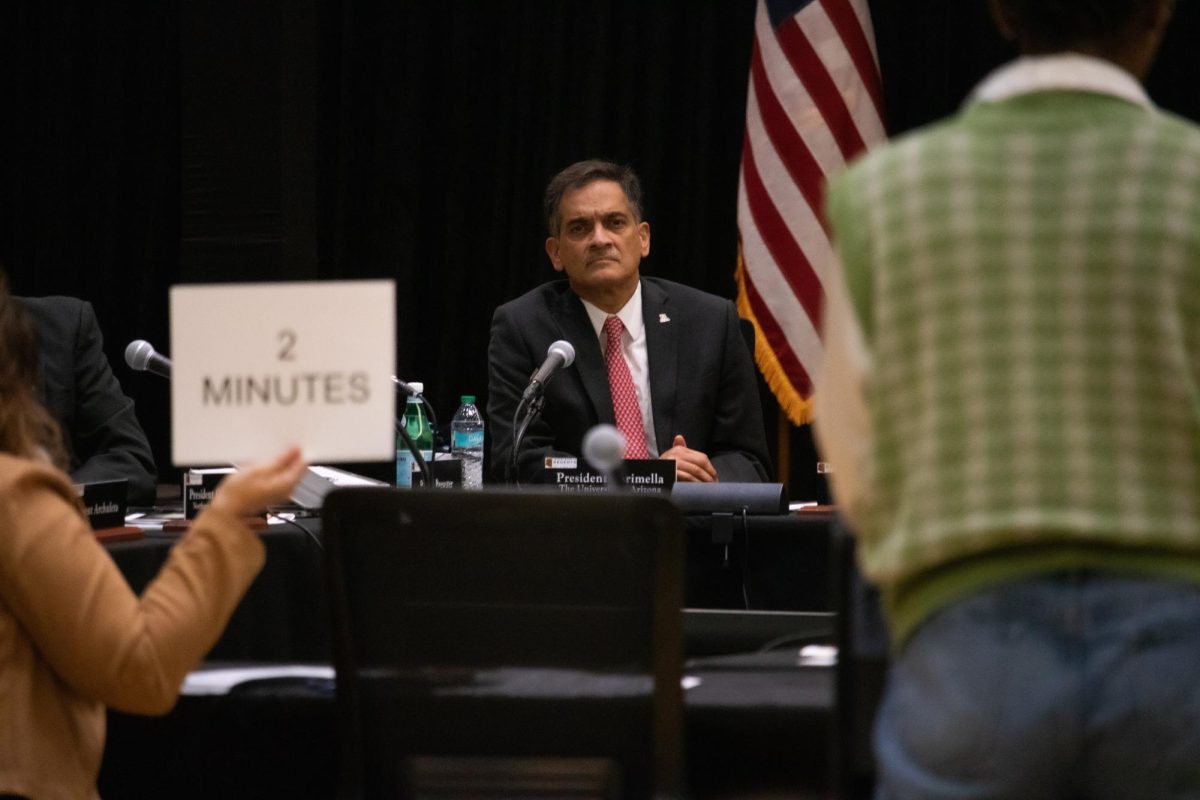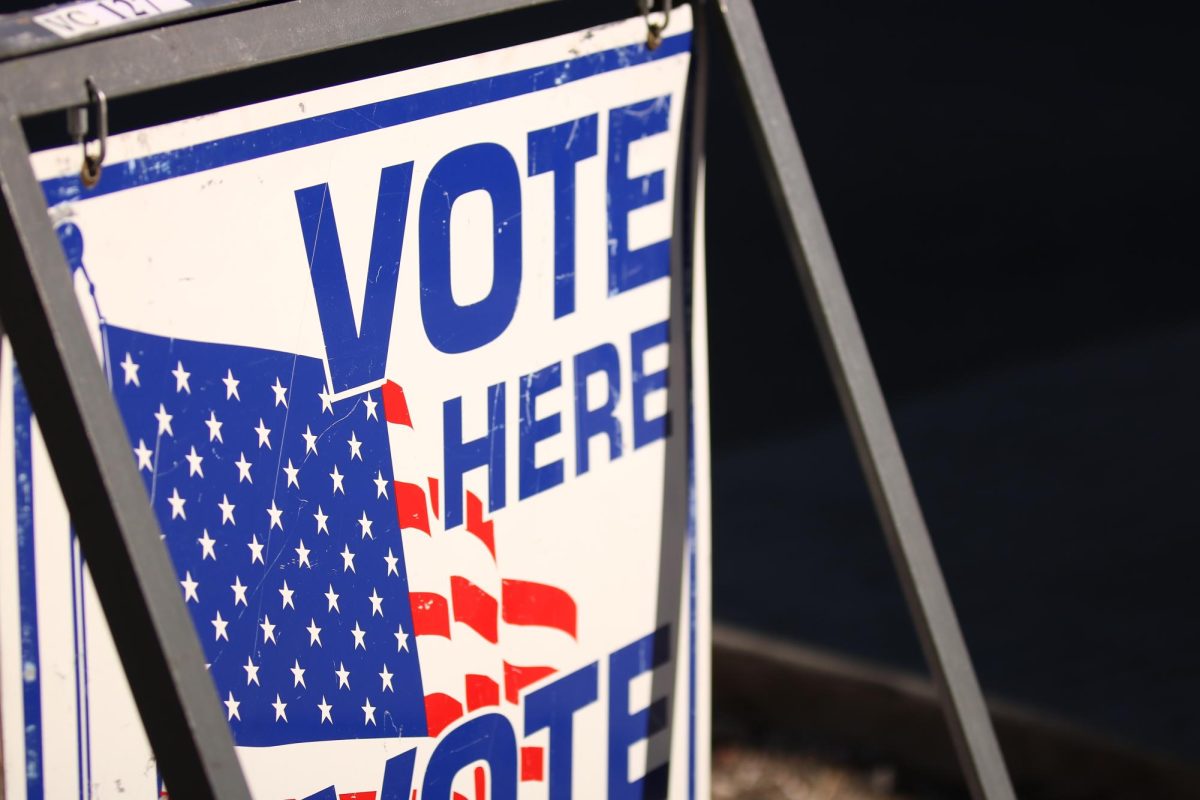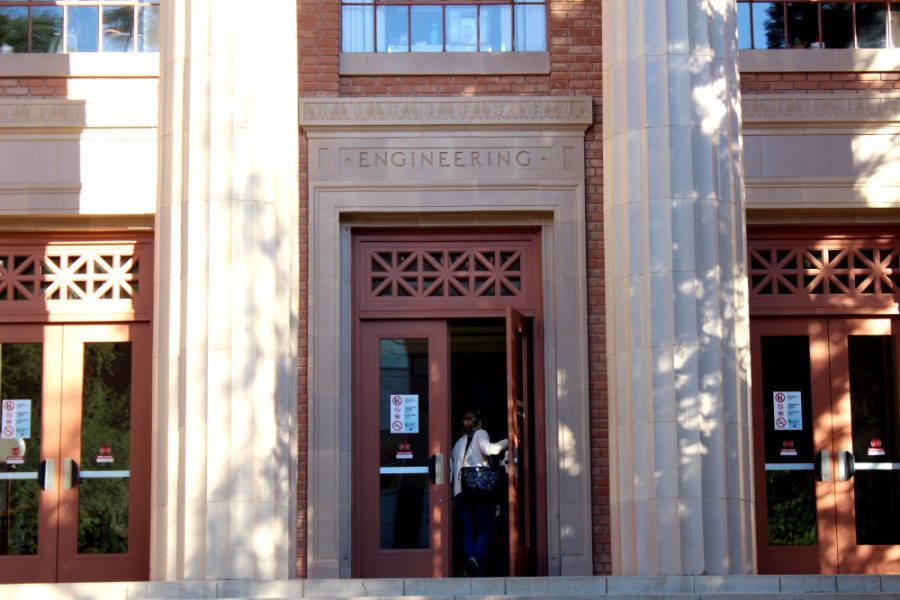After being met by fierce criticism from the LGBTQ community, including at the UA, a state legislator’s “bathroom bill” is up for some changes.
Senate Bill 1432, proposed by state Rep. John Kavanagh (R-Fountain Hills) originally would have made it a misdemeanor to use a public restroom or changing facility designated for a gender different from the one on the user’s birth certificate.
Kavanagh has altered his proposal to say governments should not determine who can use a particular restroom based on gender. Instead, the bill will leave the decision up to individual businesses, Kavanagh said.
The original proposal was intended to counter a Phoenix ordinance that passed in February, banning discrimination based on sexual orientation, gender identity or expression and disability in employment, housing and public places. However, critics of the bill’s original language say it extends beyond the influence of the government.
“I think it is really disrespectful to the transgender community because it is forcing them to out themselves and is an invasion of their privacy,” said Juan Pereyra, the graduate assistance for the UA’s Office of LGBTQ Affairs. “It is beautiful that we are able to allow them to have the ability to use whatever bathroom they choose.”
In response to criticism, Kavanagh revised the language to leave the decision of determining who uses which restroom up to individual businesses.
“I have changed the bill,” Kavanagh said. “I am saying that no level of government can override a business’ right to have an exclusively men’s room or an exclusively women’s restroom. You can’t make that a crime.
“You can’t have people sue them for that,” he continued. “It is up to the business to determine if they want to let everyone into the facility or only people with their biological gender. I’m only making this change in their civil rights law with respect to showers, locker rooms and restrooms, and only with respect to transgendered people.”
In leaving the decision up to the businesses, Kavanagh said he is no longer definitively stating that it would be considered a crime if a transgendered person enters a facility that is not designated for the gender on their birth certificate, nor should people feel the need to carry around birth certificates to use public restrooms.
“I am getting government out of this business completely on both sides of the issue,” Kavanagh said. “I am simply going to say that no local government can pass a law that deals with granting transgendered people any automatic access to restrooms other than their own biological gender.”
The UA’s Statement on Restroom Access supports “a policy of nondiscrimination on the basis of gender identity … that allows individuals to use the restroom that corresponds to their gender identity.”
The bill as it was originally proposed would have nullified the nondiscrimination policy, said Jennifer Hoefle-Olsen, the program director for LGBTQ Affairs.
“The bill as I have read it up until these changes has the potential to nullify the [Statement on Restroom Access], and that is extremely problematic for transgender individuals who have the right to determine for themselves what bathroom is most fitting for them to use,” she said.
But if Kavanagh’s updated proposal passes, the university would remain committed to the Statement on Restroom Access, said Hannah Lozon, the coordinator of social justice education for Residence Life.
“This definitely goes against the values that we hold in creating a welcoming, open and affirming space for all of our students in our residence halls and on campus, including our transgendered students,” Lozon added. “Requiring people to use the bathroom that is on their birth certificate is not fair to our students, especially if you identify as transgender.”
But regardless of the changes to the proposal, the bill would affect a “critical population on our campus,” said Katy Murray, the president of the Associated Students of the University of Arizona.
“This is not something that would create inclusivity or help improve the sense of community and belonging,” Murray said, “and that is truly the point of a college campus; for students to be able to come here from all walks of life, whether that is from different cultures, different countries,
different genders and different backgrounds.”
Michael Webb, a gender and women’s studies senior, and Devon Moule, an anthropology senior, are founding interns of the Men’s Project, a new program this semester that questions aspects of college male culture and perceptions of masculinity. Both agreed that they consider the discussion surrounding Kavanagh’s proposal to be one that students, regardless of their gender identification, should find important.
“This is a step back in terms of progress and social justice,” Moule said. “This is moving away from this idea of a perfect society that respects an individual in all its identities and more toward one that says we are only fitting them on the binary and, if you don’t fit that, then you don’t fit our society.”
The bill will be heard in the Appropriations Committee on Wednesday and Kavanagh said he remains confident that his proposal will pass.








